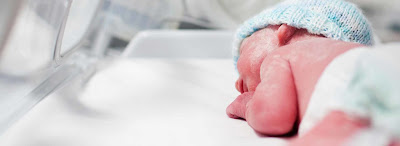When is a baby considered “preterm” or “extremely preterm?”
A normal pregnancy with one baby lasts about 40 weeks.
Babies born before 37 completed weeks of pregnancy are called “preterm” or
“premature.” Babies born before 28 completed weeks of pregnancy are considered
extremely preterm. The earlier a baby is born, the less likely he or she is to
survive. Those who do survive often have serious, sometimes long-term health
problems and disabilities.
A premature birth is a birth that takes place more than three
weeks before the baby's estimated due date. In other words, a premature birth
is one that occurs before the start of the 37th week of pregnancy.
Proluton Depot 500 mg (Hydroxyprogesterone), Hydroxyprogesterone is used to
reduce risk of preterm birth (delivery in <37 weeks of pregnancy) in women
pregnant with one baby (singleton pregnancy) and who have delivered a premature
baby in the past.
Depending on how early a baby is born, he or she may be:
- Late preterm, born between 34 and 36 completed weeks of pregnancy
- Moderately preterm, born between 32 and 34 weeks of pregnancy
- Very preterm, born at less than 32 weeks of pregnancy
- Extremely preterm, born at or before 25 weeks of pregnancy
What is gestational age?
Gestational age is the “age” of the pregnancy. It often is
counted in weeks and days. For example, “24 and 2/7 weeks of pregnancy” refers
to 24 completed weeks and the next 2 days of pregnancy.
Symptoms
Your baby may have very mild symptoms of premature birth, or
may have more-obvious complications.
Some signs of prematurity include the following:
- Small size, with a disproportionately large head
- Sharper looking, less rounded features than a full-term baby's features, due to a lack of fat stores
- Fine hair (lanugo) covering much of the body
- Low body temperature, especially immediately after birth in the delivery room, due to a lack of stored body fat
- Labored breathing or respiratory distress
- Lack of reflexes for sucking and swallowing, leading to feeding difficulties
What are the health outcomes for extremely preterm babies?
Medical advances have helped some preterm babies survive and
overcome health challenges. However, the chances that a baby born extremely
early will survive without disability are still small. With very rare
exceptions, babies born before 23 weeks of pregnancy do not survive. Although
survival rates increase for babies born between 23 weeks and 25 weeks of
pregnancy, most survivors face serious, often lifelong disabilities. As
gestational age increases, the outlook for preterm babies improves.
If my baby is born extremely preterm, will he or she need resuscitation?
Extremely preterm infants will not survive without
resuscitation. Often this means helping the baby breathe by inserting a tube
into his or her airway. Steps may be taken to start the baby’s heart. Even with
resuscitation efforts, some babies will not survive. Those who do may have
severe disabilities. Babies born before 23 weeks of pregnancy typically do not
survive even with resuscitation. In some cases, after discussion with the
health care team, a family may decide that resuscitation is not the best option
for their baby. In situations like this, medical care will focus on keeping the
baby warm, comfortable and free from pain.
Special care
If you deliver a preterm baby, your baby will likely need a
longer hospital stay in a special nursery unit at the hospital. Depending on
how much care your baby requires, he or she may be admitted to an intermediate
care nursery or the neonatal intensive care unit (NICU). Doctors and a
specialized team with training in taking care of preterm babies will be
available to help care for your baby. Don't hesitate to ask questions.
Your baby may need extra help feeding, and adapting
immediately after delivery. Your health care team can help you understand what
is needed and what your baby's care plan will be.
The solution of preterm birth
More than three quarters of premature babies can be saved
with feasible, cost-effective care, such as essential care during child birth
and in the postnatal period for every mother and baby, provision of antenatal
steroid injections (given to pregnant women at risk of preterm labour and under
set criteria to strengthen the babies’ lungs), kangaroo mother care (the baby
is carried by the mother with skin-to-skin contact and frequent breastfeeding)
and antibiotics to treat newborn infections. For example, continuity of
midwifery-led care in settings where there are effective midwifery services has
been shown to reduce the risk of prematurity by around 24%.

